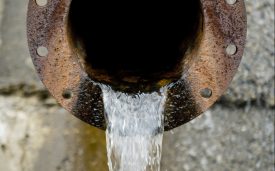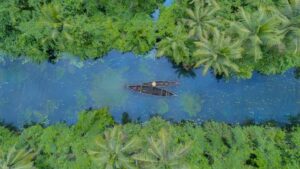How can Alternative Service Delivery improve water services?
Strong water management improves the economic and social well-being of countries. Further, the ability of water utilities to leverage a broad range of alternative service delivery and procurement options also improves water security, spurring economic growth and sustainable development.

By working with a wide range of alternative service delivery and procurement options, water utilities, using output-based specifications, are able to leverage advanced asset management principles and improve long-term financial planning. Through improved partnership management and compliance monitoring, utilities are thereby able to leapfrog significant technology, funding, and service delivery challenges and gaps that have developed over a number of years.
This SIWI paper explores opportunities to expand and improve water utilities’ service delivery through improved utilitization of the full continuum of alternative service delivery and procurement (ASD) options.
The development of an increasing number of well prepared water infrastructure projects potentially through ASD options will increase and improve water service delivery including through increased focus on life-cycle cost management, long-term integrated financial and capital planning and the application of advanced asset management solutions.
Lesson learned
The ability for water utilites to effectively leverage a broad range of alternative service delivery and procurement options contributes significantly to robust water governance frameworks and by extension to the economic and social well-being of countries. These recommendations serve to enhance the relationship between utilities and the private sector leading to improved service delivery.
• Both the APMG guide and the American Water Works association highlight the necessity of sufficiently
experienced utility management to successfully consider making use of PPPs as an alternative procurement mechanism.
• Political as well as senior management support is important to successfully develop major new projects, be they procured on a traditional and/or ASD methodology.
• Governments must ensure that both utilities and potential private sector partners can rely on clear
regulatory and institutional frameworks.
• Utility management teams led by the finance and technical directors need to ensure that proper longterm planning and execution of these plans support the long gestation period of major infrastructure projects.
• Construction companies, specialist operators, banks, legal and risk management teams use qualified specialists to bid, execute and manage major PPP projects. Utilities need to capacitate its senior management team responsible for these procurement and management functions such that they can negotiate and operate as equals with the private sector. A specialist project management unit that may eventually assume the responsibility for the project monitoring should resolve a large number of the identified challenges.
Citation
This paper has been authored by SIWI’s AEWPP team including Andre Kruger, Elizabeth A. Yaari, Ziyanda Mpakama, Lydie Menouer and Anton Earle.
The Africa-EU Water Partnership Project (AEWPP) is a joint undertaking by the European Union, the African Ministers Council on Water (AMCOW) and the Government of Sweden through Sida that aims to enhance the financial viability of water infrastructure projects in Africa by making more public and private capital accessible for water-related infrastructure projects and encouraging and supporting African governments to invest in water governance through capacity building. AEWPP is financed by the European Commission and project implementation is assigned to the Stockholm International Water Institute (SIWI).



